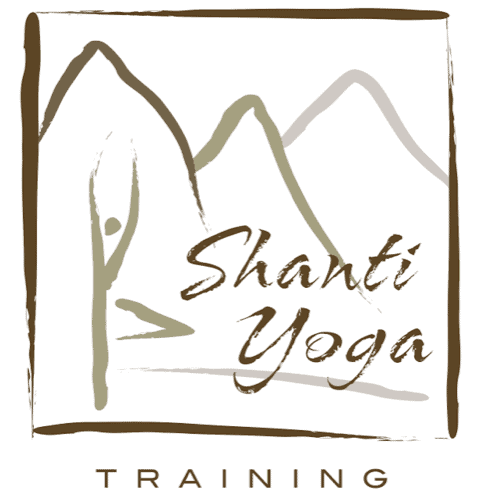YOGA
Beginner’s Mind • Beginner’s Body
No experience or flexibility required
Welcome to Yoga, one of the most meaningful gifts that you will ever give yourself!
What is Yoga?
Yoga is a time-tested, powerful method of self-improvement. Over 5,000 years old, it utilizes mental focus & deep breathing while performing a series of special postures. From the outside looking in, Yoga appears to be primarily physical, but what makes this system radically different from “western workouts” is the remarkable internal impact of the practice.
Hatha Yoga is a combination of:
- The mind – calm mental and emotional focus;
- Energy – life-force cultivation through breathing practices; and
- Body – movement and postures.
It is in the harmonizing of these three components that makes the yoga experience unique and profound. Whereas traditional fitness regimes aim at health and beauty only. Hatha Yoga aims for a fulfilling and meaningful life, with health and beauty as a wonderful side effect.
The many benefits of yoga:
- Greater strength, flexibility, balance;
- Increased energy;
- Enhanced memory and concentration;
- Better posture;
- A stronger immune system;
- Reduced stress;
- Prevention and healing from common problems like fatigue, back pain, hypertension, headaches, carpal tunnel syndrome, joint and muscle injury;
- And most importantly… inner fitness.
Inner Fitness?
As we all know, when we experience stress or depression we pull our family and community down with us. But what is also true, is that when we dedicate a relatively small amount of time each week becoming more conscious and kinder human beings, while simultaneously improving our health and vitality, we elevate not only our own lives, but also elevate our family and community. What we attempt in yoga is to leave the craziness of our lives behind to feel more vital, relaxed, and sane. As we do this, what we cannot help but take from the yoga room is a kinder, more focused, more patient and of course, a more physically healthy sense of being. Although yoga appears to be primarily physical, its benefits are far reaching.
What can you expect in a yoga class?
You’ll hear a lot about breathing & breath awareness. There are complex reasons why the breath is so vital to yoga, but from a purely physical standpoint, our breath is closely related to our nervous system. Remember the old adage about “taking a few breaths & counting to 10”? It works, and in yoga, you’ll explore this on a deeper level.
You’ll be advised to take it easy & allow yourself the immense freedom of being a beginner. Since one of our aims is regenerating health & peace in the body/mind, competitive goal setting towards astounding flexibility or impressive feats of gymnastics is actually counter-productive. Don’t worry at all about how your body looks, you are in a room full of friends who are here for the same reason as you. So, instead, aim on practicing with breath awareness, & compassion toward yourself & those around you. Do this & you will find that your body will become stronger, more supple, healthier & radiant without the vanity or sometimes self-loathing that is often attached to your idea of “fitness.”
You might experience sweating and occasionally dizzy feelings. Often at the end of class, emotions arise ranging from a surging sense of joy and laughter, to tears. This is normal and usually old feelings finally being released. These are all physical signs of the healing work of yoga. Remember that you are surrounded by friends, people of like-mind who are focused on growth & healing, they’re not judging you, they’re wishing you well & know themselves what it is to discover the gift of yoga.
How often should you attend classes?
It really depends on YOU! That’s the beauty of yoga, it’s all about you. That said, it is always best to progress slowly. As Iyengar says, “Practice today in a way that you can practice tomorrow”. At first, you might begin with just a few sessions a week…or a shorter period each day. A rule of thumb is to increase your time by just 10%. Maybe, build up to practicing four days a week, or begin adding more time as your schedule permits. From a consistent practice like this, a momentum is gained and you will see notable, exponential changes within a relatively short time. You will learn yoga that you can take home, to the office or on the road so you can keep practicing on your own without needing to attend classes! In other words, it has become your own habit, practice and even, lifestyle.
Yoga Room Guidelines (whether at home or in a studio)
These basic guidelines are to help enhance your yoga practice and aid in creating a collective experience of peace.
- Be kind to yourself by accepting where you are. Rest sometimes. “Do what you can, with what you have, with where your are.” Remember: wherever, whenever in our life we begin yoga is perfect. Yoga is non-competitive
- Eliminate outside distractions. This is your time to go inward. Always avoid cell phone usage in a yoga studio and give yourself the opportunity to leave it in another room at home.
- In a public space, arrive a few minutes early. Consider being prompt as a part of your practice.
- Mention any preexisting injury or special condition to the instructor at the beginning of class so that she/he can help you.
- Entering class constantly late is disruptive and disrespectful. If you do arrive late, take a breath, unravel your mat, and then enter as quietly as possible. Please leave your shoes in the shoe cubbies, then enter the yoga room quietly. Your practice starts when you enter. Please try not to enter or leave the studio during opening meditation or closing savasana.
- Practice on an empty stomach. It is recommended that you do not eat right before practice. If a special condition prevents this, eat easily digested foods such as fruit or yogurt before class.
- Acquire and use your own yoga mat for optimum hygiene.




